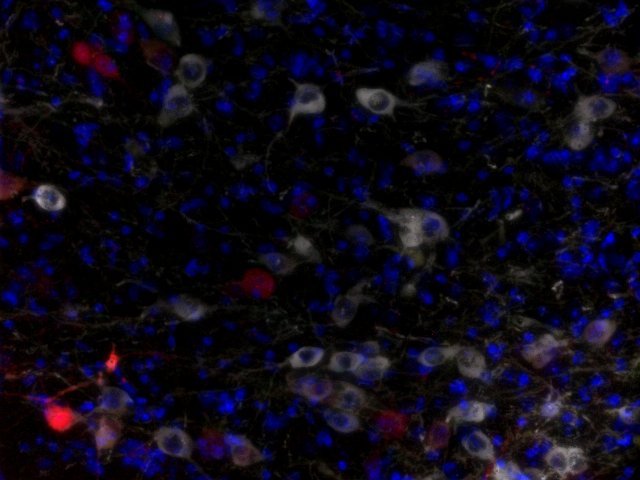
Research Projects
Dissecting the diversity of opioid-sensitive dopamine circuits
We are delineating how functionally diverse ventral tegmental area dopamine neuron subpopulations modulate opioid reinforcement and associative learning across the opioid exposure cycle. We aim to understand how the intrinsic and extrinsic regulators of activity in dopamine neuron subpopulations adapt across these experiences. This work will help unravel the neural basis of the progression of opioid-use disorders.
Targeting the neural circuits involved in opioid withdrawal
The drive to relieve the negative emotional and physiological symptoms during opioid withdrawal has been a key contributor to opioid relapse and the progression of opioid-use disorders. We want to identify the cellular regulators of the brain regions that are overexcited by negative emotions, aversive sensory signaling, and opioid withdrawal. This work will help us identify novel therapeutic targets for opioid withdrawal to stop the progression of opioid-use disorders.
Identifying the impacts of negative emotional states on decision-making behaviors
The decisions we make are dependent on our internal physiological and affective states. Chronic stress can induce negative affective states, alter motivational drive, and dysregulate value assessment. This can impact the ability to learn and make decisions. We are investigating how subpopulations of dopamine neurons may uniquely adapt across chronic stress to impact components of learning and decision making. This work will further our understanding of how we make our choices under different emotional states.
Current Funding
University of Maryland, Baltimore’s Institute for Clinical & Translational Research Accelerated Translational Incubator Pilot Award: Discovering potential of focused ultrasound therapy for opioid-use disorders
NIH K99/R00: Dopamine Circuit Regulation of Morphine Reinforcement Across the Opioid Exposure Cycle, DA054265
Brain and Behavior Research Foundation: Understanding parabrachial control of opioid withdrawal and negative affect, NARSAD Young Investigator Award
Past Funding
Cure Addiction Now: Discovering Ion Channel-based Treatments for Opioid-Use Disorders, Young Investigator Award
Burroughs Wellcome Fund’s Postdoctoral-Enrichment Program: Establishing the Pathophysiology of Gating Charge Mutations in Neuronal Dysfunction and Behavioral Disruption.
University of Washington’s Center of Excellence in the Neuroscience of Addiction, Pain and Emotion Pilot Award: Functional Dissection of Parabrachial Nucleus Cell-Types and Projections in Opioid Withdrawal
University of Washington’s Nutrition and Obesity Research Center ADVANCE award: Determining the Neurophysiological Adaptations in Diverse Dopamine Subpopulations Following a High-fat Diet




